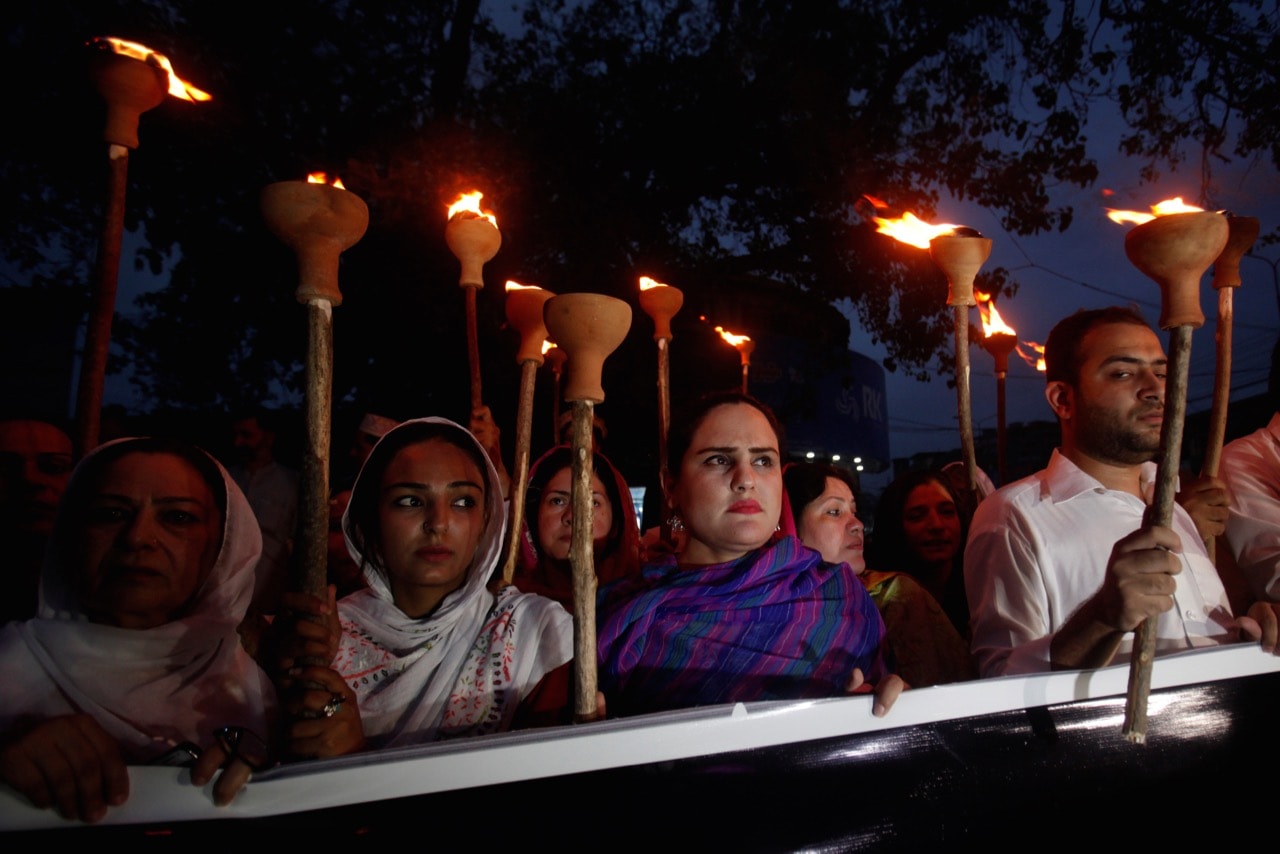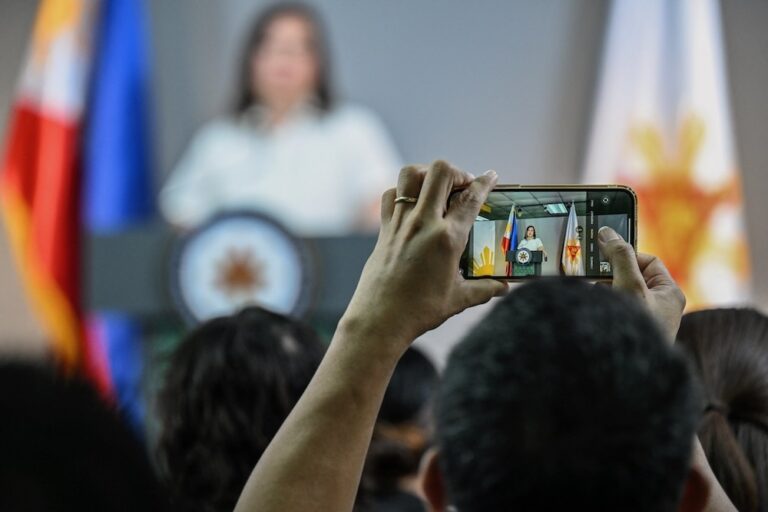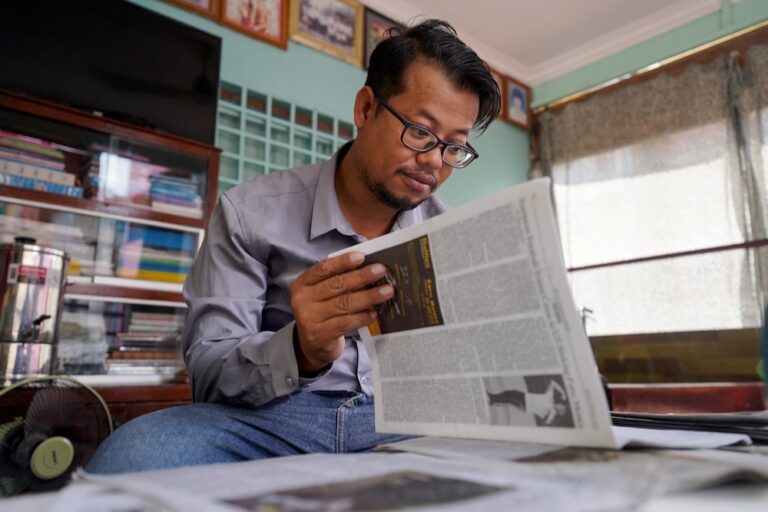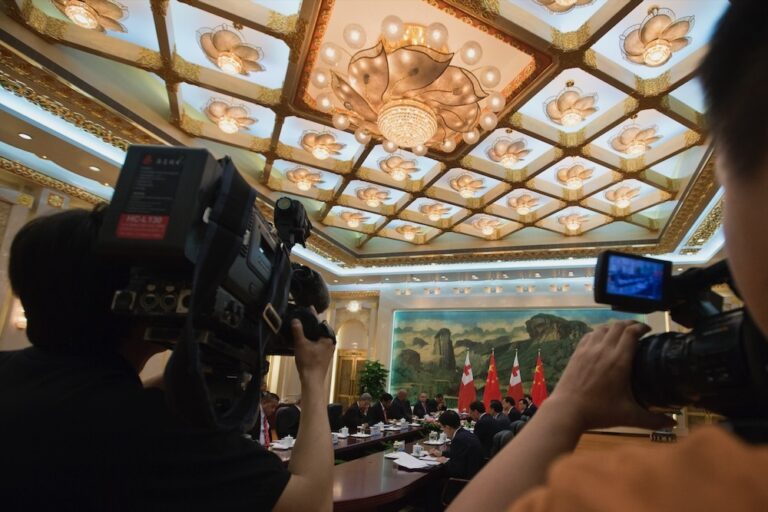A tragic murder in the Maldives shakes the world, India and Malaysia's digital crackdown, and Yance Wenda gets beaten up covering...World Press Freedom Day protests.
The killing of independent blogger Yameen Rasheed in Male, Maldives, drew international condemnation as threats against free speech and press freedom continue to rise in the country. On 23 April 2017, Rasheed was stabbed 16 times, near his home, and died shortly after in hospital. According to media reports, he had complained repeatedly to the police about death threats he received, but with little response from the police. Rasheed was a well-known liberal thinker and a social activist, best known for his satirical writing that criticised the government, on social media as well as on his blog, The Daily Panic. Global Voices wrote that Maldives has a troubling history of extrajudicial killings, which target journalists, activists and bloggers. The International Federation of Journalists demanded a thorough investigation into the murder, adding that Maldives was fast becoming known as a “murderous paradise” for those fighting for freedom of expression. The blogger had led a campaign for missing journalist Rilwan Abdulla, who was believed to have been abducted in 2014. The two were among those who dared to question the way Islam was practiced in the country. The Committee to Protect Journalists (CPJ) and Reporters Without Borders joined the chorus of condemnation and concerns that such brutal killings would have a chilling effect on the environment for free speech.
Friends and colleagues took to Twitter to express their shock and sadness.
I’m feeling so so low. I need to talk to my friends. Both of whom this country has taken away. ????❔
— Mariyath Mohamed (@EhJu) April 24, 2017
Both Yameen and Rilwan used their satire and writings against corruption, authoritarianism, extremism, and Salafi puritanism in the Maldives https://t.co/SZUKmtwX8j
— Zaheena Rasheed (@ZaheenaR) April 27, 2017
Yameen Rasheed was a brave HRD and eloquent blogger. The human rights community will not let his brutal murder be ignored. Rest in peace.
— Mv Democracy Network (@MDN_mv) April 23, 2017
Against this backdrop, it was an important milestone for the media community in Maldives when one of its independent outlets, the Maldives Independent and its former editor, Zaheena Rasheed, received the Index on Censorship Freedom of Expression Journalism Award at a ceremony on 19 April. Index said the outlet continues to hold the government to account despite police raids as well as death and legal threats received. In her speech, Zaheena Rasheed said the award was a lifeline as the recognition and fellowship has renewed and strengthened their resolve to keep up with their reporting.
In Pakistan, a 23-year old university student, Mashal Khan, was killed by a vigilante mob that accused him (wrongly) of publishing blasphemous content online, a crime punishable by death in the country. Another student, Abdullah, was seriously injured in the incident that took place on the premises of the Abdul Wali Khan University in Mardan on 13 April. According to media reports, the mob may have been incited by rumours circulating among the university’s student body that the two were promoting the Ahmadi faith on Facebook. Ahmadis, a minority sect in the Islamic faith, have been declared non-Muslims by the state since the 1980s. Mashal Khan had written on his page last December that a fake account with his name and that maligned him, had been detected. Critics say the violence in this case followed a familiar pattern where rumours of someone committing blasphemy, often unsubstantiated or based on fake accounts, are circulated and a mob is gathered and incited to attack the individual. In a statement, Bytes for All condemned the gruesome killing and said it showed the failure of the state and its institutions to protect its citizens. It pointed to evidence showing technology and social media manipulated by state and non-state actors to silence expression, opinion and speech. As of the end of April, 47 out of 49 identified suspects have been arrested.
⚡ Tribute To Humanist #MashalKhan by @Raag_Vaibhavhttps://t.co/vYiSER8kMQ
— Aqssa Syed (@AqssaSyed) April 24, 2017
Those familiar with Mashal Khan said he had been critical of the university’s administration, as shared in this tweet.
#MashalKhan was protesting against corruption and fighting for equal opportunities for poorer students. https://t.co/KBG5zp3JOp
— Newsline Magazine (@NewslineMag) April 27, 2017
Digital freedoms
In India, the government imposed a one-month ban in Jammu and Kashmir on 22 social media and messaging apps, including Facebook, Twitter, Snapchat, WhatsApp and Youtube, on the grounds of national security. The Committee to Protect Journalists said the sweeping censorship – on the pretext of maintaining peace and order – violated the democratic and human rights ideals that India purports to uphold. Earlier in the month, protests and a crackdown by security forces took place in Kashmir following a boycott of the elections by pro-independence protestors. According to a Global Voices report, the government shut down colleges and universities where protests were taking place, and enforced bans on 4G and 3G services – to prevent people from uploading and sharing videos online.
In Malaysia, ARTICLE 19 has voiced its concerns over the arrests of individuals for their social media postings under criminal and internet laws, allegedly for maligning the government. In one case, a man was arrested for posting a photo of his participation in an electoral reforms rally wearing the Bersih t-shirt, while a woman was arrested for a Facebook post deemed offensive to a member of a royal family.
Press freedom and West Papua
As Indonesia hosted the 3 May World Press Freedom Day events, critics pointed out the continued repression and censorship in West Papua, where civil society and political activists have been campaigning for greater freedoms. On the eve of the official celebrations in Jakarta, Jubi photographer Yance Wenda was arrested and beaten by police while covering a peaceful demonstration in Jayapura, West Papua’s largest city. Reporters Without Borders said in a statement that it was not uncommon for journalists to censor themselves because of the threats faced, especially when reporting on protests targeting the central government. They called on President Joko Widodo and the international community that gathered for World Press Freedom Day to condemn the violence and other freedom of expression violations in West Papua. Despite the advances made in freedom of expression in Indonesia, its press freedom ranking, according to Reporters Without Borders, is only at 124.
Free Press in #WestPapua #WPFD2017 #LetThemIn pic.twitter.com/wnLfx9gEn9
— Victor Mambor (@victorcmambor) April 30, 2017
In its 2015 report, Human Rights Watch found that despite the president’s assurances of an opening, restrictions on foreign journalists and monitors continued. A public forum held in Jakarta on 2 May discussing the situation in West Papua came under intense pressure and scrutiny from the state, indicating the sensitivities that surround the issue.
The event was highly surveilled, what are you scared of? That the truth finally comes out? https://t.co/1Caldwh00o #WPFD2017 #LetThemIn
— Veronica Koman (@VeronicaKoman) May 2, 2017



